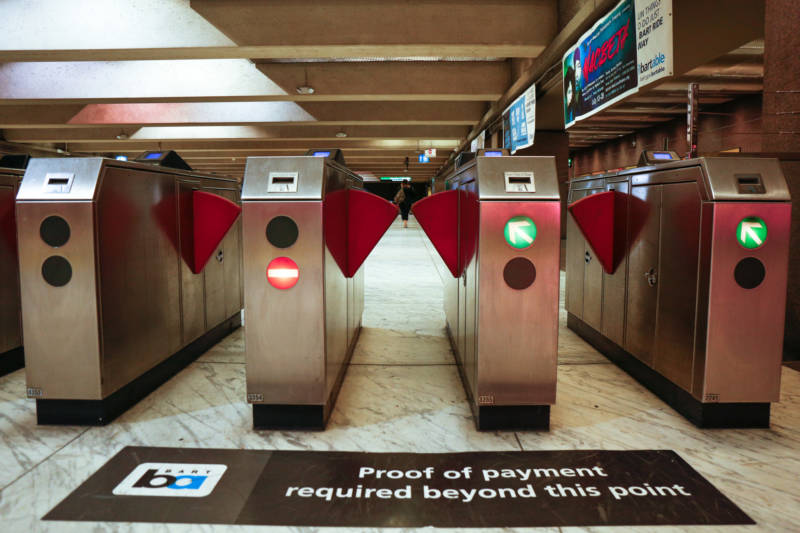Maybe someday all transit will work like Emeryville’s Emery Go-Round, which whisks riders around the diminutive East Bay city and does it for free.
Maybe. Someday. But we're not there yet, and on New Year's Day, we'll be reminded of that when patrons of some of the Bay Area's busiest, most popular public transportation services will be paying more to ride. Here are the details:
- BART: If you feel like BART raised fares not all that long ago, you're right. In a policy that dates back to 2006 and is scheduled to continue through the 2020s, the agency raises fares every two years. The increases since then — see the table below for BART's full fare history — are indexed to inflation and represent an average of the regional and national inflation over the last two years minus 0.5%. The 5.4% increase taking effect Wednesday will increase the system's minimum fare from $2 to $2.10. The maximum non-airport fare, for the roughly 60-mile trip from Antioch to Millbrae, will rise from $8.75 to $9.25. The system's most expensive ride, from Antioch to San Francisco International Airport, will move from $13.15 to $13.85.
Note: For New Year's Eve revelers, BART's 2019 fares will be in effect both before and after midnight. BART spokesman Jim Allison says the new, higher fares don't kick in until the beginning of regular morning service at 8 a.m.Those using BART's paper tickets, a payment medium the agency is phasing out, will continue to pay $0.50 more per trip. (For complete fare information, see BART's fare calculator.)
- AC Transit: The East Bay agency will raise its transbay bus fares from $5.50 to $6 each way. That's the full adult fare for both cash payers and Clipper Card users. The cost of AC Transit's 31-day adult fare pass will rise from $198 to $216. See: Full details on AC Transit's 2020 fares.
- San Francisco Muni: Muni, the Bay Area's busiest transit agency, will be leaving most fares unchanged Jan. 1. But the price for two popular tourist fares are going up.Muni is raising the price of a ride on the city's (pick your adjective: iconic, much-beloved, antique, other) cable cars from $7 to $8. The cash price of Muni's passport fares will also rise, with a one-day, all-you-can-ride pass going from $23 to $24, a three-day pass rising from $34 to $36, and a seven-day pass increasing from $45 to $47. Significant discounts for those fares are available if you use Clipper or the MuniMobile app. See full fare details here: Muni basic fare table.
- SamTrans: The San Mateo County bus agency breaks the fare-hiking mold by actually reducing some fares to begin 2020. An adult day pass will be reduced from $5.50 to $4.50 (the youth version will decrease from $2.75 to $2). SamTrans is also eliminating a surcharge for riders who begin their trips in San Francisco on three routes — 292, 397 and 398. Those riders will now pay only the system's existing local or express fare. Full details here: SamTrans 2020 fare changes.

